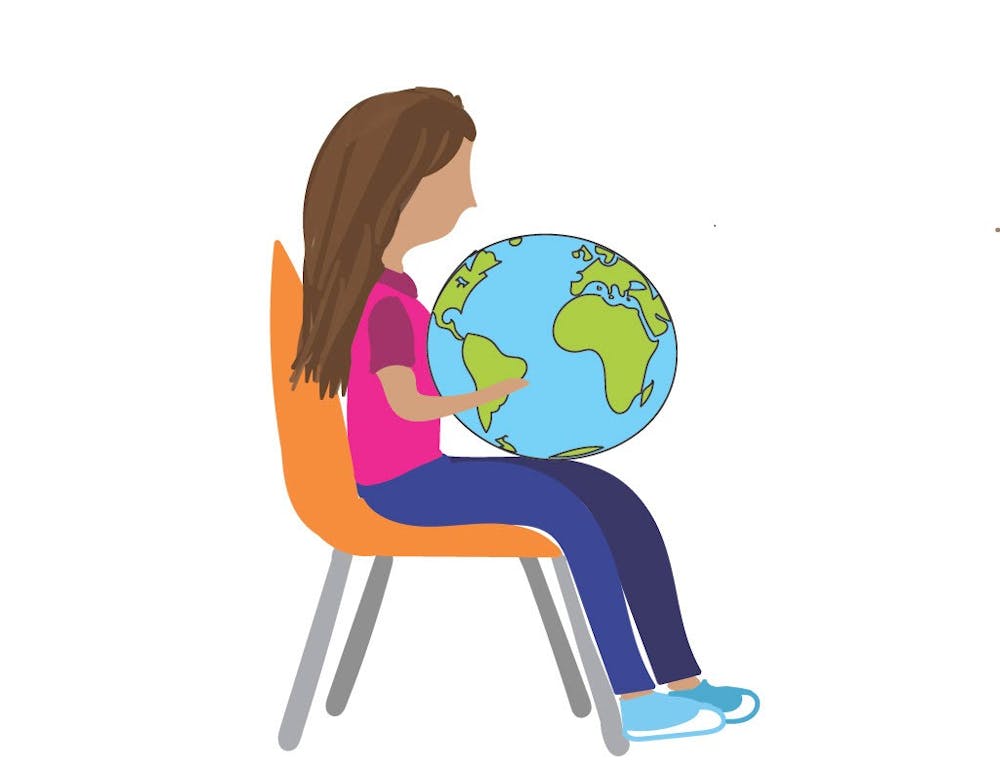There are many defining and existential moments in each generation. For my grandparents, they were the world wars and the Great Depression. For my parents, it was the Cold War and the constant threat of nuclear annihilation. For millenials, the new and unknown world of the Internet and later, 9/11. All of these events have shaped the way certain age groups think about the world around us — specifically, about the threats to the world as we know it. And so, of course, Generation Z also did not escape the inevitable and existential threat to life as we know it. For us, among other events, it’s climate change.
Ever since fifth grade, I’ve been constantly reminded that the world around me is changing for the worse. The first time I heard about rising levels of carbon dioxide in the atmosphere, I hadn’t yet lost all of my baby teeth. As one can probably discern, consistent reminders of the end of the world throughout my youth dramatically impacted my formation as an individual. I grew up proactive, as well as anxious — determined, as well as fearful. Although I had been inspired to fight for the world around me, my motivation came from a place of dread rather than of passion.
I am not alone in this experience. In an article published by Nature, it was revealed that 60 percent of individuals between 16 and 25 years old feel significant anxiety around the topic of climate change. Our generation has grown up being taught to be afraid, and these are the consequences.
And so, having grown up fearful of the consequences, I came to college determined to use my education to combat climate change. Environmental science was the obvious choice for my major. Pairing it with Environmental Thought and Practice, I aimed to use the University as a springboard for political and scientific action against continued damage to the environment. I set my eyes on a career that would place me in front of the people in power — as an environmental lawyer, journalist or lobbyist — making it so that they could no longer ignore the issues that had so deeply permeated my perception of the world around me.
However, as an incoming first year, I became nervous. I always loved nature. One of the reasons I had been so impacted by climate anxiety was because of my deep love for the natural world, and thus experienced deep distress at the thought of its destruction. Although I was excited to explore and learn more about the great outdoors, I didn’t know how I would cope with the increasing presence of climate change in my everyday life.
I soon realized an important piece of the puzzle that I had missed as I tried to understand how to live in a changing climate is that as I mentioned, I am not alone in experiencing climate anxiety. But I am also not alone in trying to fix it. At the end of every environmental science class, there is the dreaded unit on climate change. What I did not expect from these weeks of crisis was content about what the other environmentalists are doing to mitigate its impacts. To be quite clear, climate change is still a large, unprecedented, existential and terrifying issue — however, to my surprise, I’m not the only one who’s noticed.
Through making friends with classmates and lab partners, joining clubs such as the Environmental Sciences Organization and spending time getting to know my professors and advisors, I’ve been comforted by the fact that there are hundreds of people at the University alone who share my passion for the Earth and my concern for its fate. There are projects taking place at this very moment aiming to address the threats that our planet faces — ESO’s efforts to monitor light pollution at the University, research efforts at facilities such as the Blandy Experimental Farm and a plethora of graduate research projects.
Realizing that the onus of climate change is not one that rests solely on my shoulders — or perhaps the shoulders of just me and Greta Thunberg — has freed up mental space for me to rediscover why I fell in love with nature in the first place. Whilst sitting in geology, atmosphere and weather, hydrology and so many other classes, I’ve found myself enraptured by the beauty and grandeur of the natural world, forgetting for a moment the emotional burden I had for so long associated with it.
And so, we press on — the environmental advocates, the lawyers, the researchers, the community organizers and the starry-eyed students. For the most part, we keep our eyes fixed on the future that we’re fighting for. But knowing that we walk alongside an army of environmentalists just like ourselves allows us, if just for a moment, to stop and enjoy the world we’ve dedicated our lives to save. We may be marching towards our society’s most powerful strongholds — Congress, the White House and corporate headquarters around the globe — but we won’t be standing before them alone.







